Is A Plant Based Diet Healthy?
Vegan and Vegetarian diets that implement nutritional wisdom are healthy and contribute to the wellness of animals and the earth. This diet is not only a compassionate choice for the goodness of our beautiful planet but can be extremely healthy. Health experts are quickly learning that a healthy Vegetarian lifestyle is a good diet for the whole family. The following information is encouraged for those interested in becoming Vegan or Vegetarian and those who already are.
Meats are often loaded with hormones, antibiotics, and dangerous chemicals. Meats can also contain germs, bacteria, tiny parasites and even viruses such as mad cow’s disease. All meat is difficult to digest and robs the body of vital energy during its digestion. Since meat is hard to break down undigested portions can end up rotting in the colon creating toxic chemicals within the body. Vegetarian diets do not include meat, which can be healthier and more compassionate to animals and the planet as well.
A Vegetarian diet will provide a human being with all the essential nutrients required on a daily basis while avoiding the cholesterol, saturated animal fat, and contaminants that are found in meat. The Vegetarian diet when implemented as follows will include plenty of protein, fiber, carbohydrates, omega-3 fatty acids, minerals, and vitamins. Besides providing these essential nutrients, Vegetarian diets also provide long-term benefits to those who choose this lifestyle. A study of native Africans and dwellers of the Middle East shows that these people have strong bones and teeth despite having a mostly Vegan diet. Their food choices do not cause calcium deficiency in them that would lead to a weakness in the bones and teeth. The vegetables they consume contain enough calcium for them to have strong body parts. This is just one example of how you do not need meat to get all essential nutrients. People who follow a veggie diet are known to lead longer and healthier life than meat eaters.
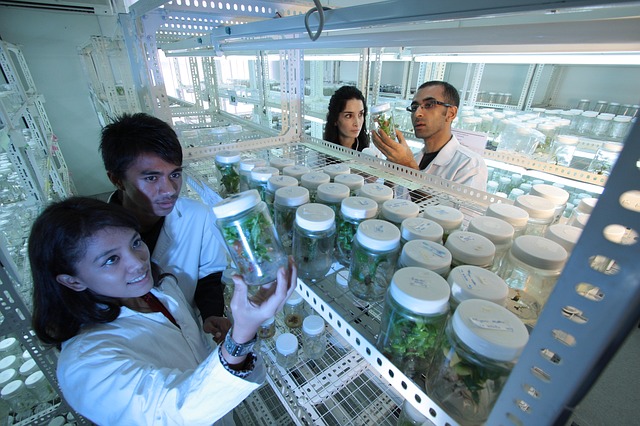
Research
Medical research demonstrates that a Vegetarian diet provides protection against several diseases and the top three fatal problems in the United States; heart disease, strokes, and cancer. Those who follow a Vegetarian diet have fewer instances of death from heart disease. According to the latest medical research, Vegetarians run a risk that is 50% lower than that of meat eaters of developing heart disease. Generally Vegetarians have healthy cholesterol levels, blood pressure, and are less at risk for developing hypertension, diabetes (type 2), and colon and prostate cancer. Similarly, Vegetarians are at a 40% lower risk of developing cancer. Meat eaters are also 9 times more likely to have weight or obesity problems as compared to Vegetarians.
“Recent scientific advances seem to have resulted in a paradigm shift: diets largely based on plant foods, such as well-balanced Vegetarian diets, are viewed more as improving health than in causing disease, in contrast with meat-based diets.”
Professor Joan Sabate, Chairman of the Loma Linda University Department of Nutrition, School of Public Health
There have been several medical studies that have established a firm link between meat and dairy foods and an increase in medical conditions such as Alzheimer’s, arthritis, asthma, diabetes, heart disease, impotence, obesity, and osteoporosis. Other physical advantages enjoyed by Vegetarians include a stronger immune system. This automatically provides them a greater protection against common cold, flu, and such everyday problems by warding off infection at an early stage. Many of the longest living people are Vegetarian or eat a predominantly Vegetarian diet such as Vegetarian Marie-Louise Meilleur, who was named as the world’s oldest person at 122. According to an extensive Loma Linda University study the average life span of Vegetarians tends to be around 5-7 years longer than that of meat eaters.
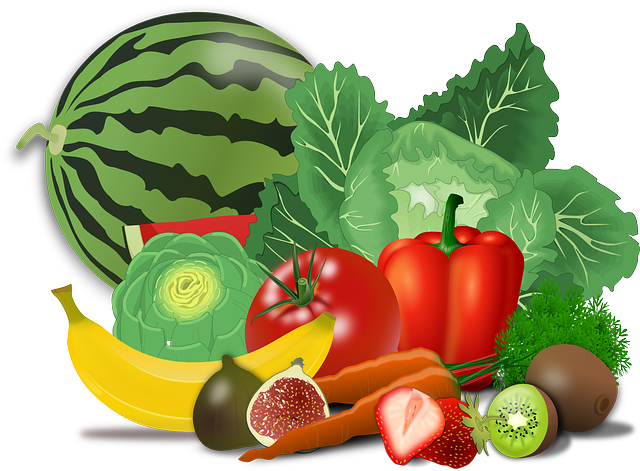
Is This Diet Healthy For Children?
A Vegetarian diet is also good for the kids. Studies show that children who brought up on a Vegetarian lifestyle will be taller and have a higher IQ compared to other children. Their lifestyle will also mean that in later years they will be at much lower risk from heart disease, diabetes, obesity, and other common problems among meat eaters.
Studies also prove that older individuals who have been meat eaters can also benefit through preventing and sometimes reversal of several problems associated with old age by shifting to a Vegetarian lifestyle.
The human body is very responsive to changes in diet and you can take charge of this any day you wish.
A healthy Vegan or Vegetarian diet will easily supply the body with all its various nutritional requirements. A healthy Vegetarian does not just avoid meat…they implement strategies to empower their diet. There are Vegetarians that avoid meat, however, make many unhealthy diet choices. The healthy Vegetarian diet goes beyond avoiding meat and embraces the healthy nutrients available. There are nutritional choices you should consider to fully experience the advantages of the Veggie lifestyle.
Are You Considering The Vegetarian Diet?
There are many long-term advantages in terms of health if you decide to switch to a Vegetarian lifestyle. A Vegetarian diet is a lot healthier than a diet that includes meat and meat based products. There are many advantages in making this switch, but you should be aware of what you are eating, how this will affect your daily nutrition, what you must include and what you must avoid.
Some tend to switch to a Vegetarian diet just because they see so many celebrities endorsing its virtues. Just cutting out meat and including vegetables is not a recommended way to switch to Vegetarianism. While it is true that a Vegetarian diet is healthier, it requires that an individual acquire a small amount of important nutritional knowledge. This nutritional wisdom implemented on a regular basis will allow a person to thrive on this diet.
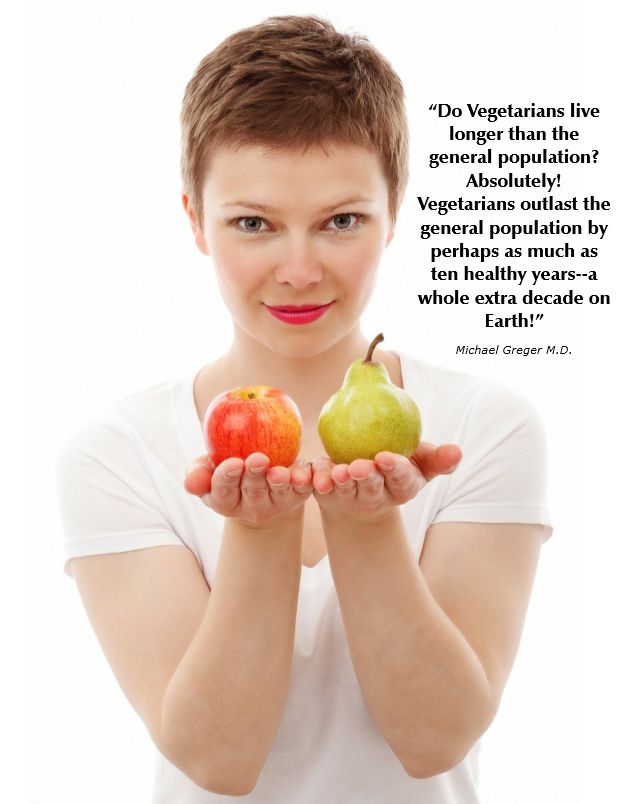
There are several reasons why people decide to switch to a Vegetarian lifestyle. The most practical reason can be the health benefits but some people even choose a plant based diet because of religious reasons. Another group of people feel strongly about the ethical rights of animals and hence switch to being a Vegan. Some Vegetarians are entirely committed to their viewpoint and they will only eat in Vegetarian restaurants when outside.
Regardless of the reason, there are numerous advantages of switching to a Vegetarian diet. The Vegetarian diet can be implemented with success in spite of age or lifestyle. You can adopt a Veggie way anytime you wish.
It is true that an improperly planned meat based or Vegetarian diet will lead to deficiencies, but it is equally true that a well planned Vegan or Vegetarian diet such as the one described here is wholly nourishing.
Given below are some of the reasons why people switch over to a Vegetarian diet. It is quite likely that you already have at least one, if not more, reason in mind when you contemplate going down Vegetarian lane.
General Health
The healthy Vegetarian diet has numerous health benefits from a longer life expectancy with less health complications to increased energy.
Weight Loss
A Vegetarian diet can be a delicious even when it is helping you cut calories. However, note that if you do not improve your eating habits, even a Vegetarian diet will not help you lose weight. If you leave out the meat and replace it with highly processed foods any body weight issues will continue. A Vegetarian or Vegan diet will not help weight issues if the majority of your calories come from highly processed, fried, and other unhealthy foods…so do not assume that just because you are not eating meat that you can indulge yourself in any way you please. If you adhere to the recommendations of this diet and get the majority of your calories from whole fiber rich foods a healthier bodyweight will be much easier to manage.
If you choose the Lacto Ovo diet, which is the easiest vegetarian style to maintain, remember that eggs, butter, cream, whole milk products all have high quantity of fat and extra calories. Nuts and seeds that are rich in protein also have plenty of extra calories from fat in them. Fats from nuts and seeds are healthy and recommended, however if you have weight issues you may want to manage those portions.
Religion And Spirituality
Some people think that it is wrong to kill animals for the benefit of human beings. This does not involve merely killing to eat but also killing or using for other purposes. The pure Vegan will not use items made from leather and they will not use silk fabrics as silkworms that are also living creatures make them. Cultures like and similar to Buddhism that believe in Karma are also against killing of animals for any reason because all life is sacred.

Environment
Some people are also concerned about the environment so they turn into Vegetarians. This is because keeping cattle causes plenty of deforestation and other environmental issues.
Compassion
Many people choose the veggie lifestyle because they do not wish to slaughter an animal for their enjoyment. Animals like us feel pain and wish to stay alive.
You will have your own reasons that may fall into many different categories.
Keep in mind that you may not feel spectacular immediately after switching to a Vegetarian diet. The benefits of Vegetarianism are more long term than short term…from longer healthier lives to a more compassionate lifestyle.
There are many advantages in making this switch, but you should be aware of what you are eating, how this will affect your daily nutrition, what you must include and what you must avoid.
What Can A Vegan And Vegetarian Eat?
Healthy Vegans and Vegetarians emphasize variety in their diets by including ALL of the following foods: vegetables, fruits, whole grains, raw nuts, legumes, beans, fermented foods, and sprouts. Since a focus of this lifestyle is on a nonmeat diet, you are automatically consuming a lower quantity of cholesterol and saturated fat. Fresh fruits and vegetables also mean a higher quantity of natural fiber in your diet.
Vegetarians are divided into many groups depending on the type of Vegetarian diet they follow. The pure Vegan will only eat plants (vegetables and fruits), legumes, grains, nuts, and seems. A Lacto-Vegetarian will include milk and dairy products besides the classic Vegan diet. A Lacto-Ovo Vegetarian diet includes eggs, milk, and dairy products. Pesco-Vegetarians consume fish while Semi-Vegetarians are another form of Vegetarians and they consume poultry and fish but no other meat.
Depending on their diet, there are five broad groups of Vegetarians. There are further variations as well but these are the most common.
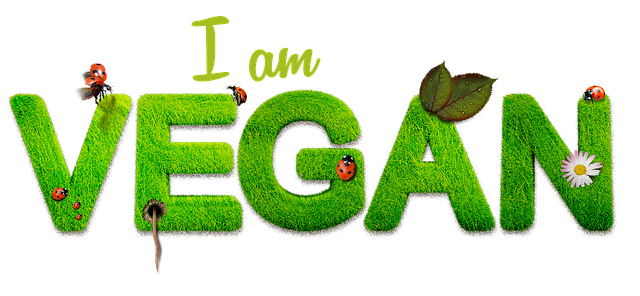
Vegan (pronounced Veegan)
This group excludes not just animal food but also other animal products. A Vegan will not eat any meat, fish, poultry, eggs, milk, cheese, dairy products or any bi products of these. They eat only plant-based food. This compassionate group also makes lifestyle choices that supports the welfare of animals.
Lacto Vegetarian
In addition to the pure plant diet of Vegan, the lacto-Vegetarians also consume milk and dairy products. They will not consume meat, fish, poultry, and eggs.
Lacto-Ovo Vegetarian
This group of Vegetarians will not eat meat products, however, they will incorporate eggs and dairy into their diet.
Pesco Vegetarian
This group of Vegetarians will eat fish and no other meat products. Many Vegans started with one of the other variations before making The transition to a complete Vegan. Many find it is easiest to start with a more flexible group and evolve into a Vegan over time. For optimal wellness, the Vegan group needs to posses the most nutritional knowledge.
Bivalve Vegetarian
This is one the fastest growing vegetarian diets because it is one of the easiest to ensure that nutritional needs are met. It follows the guidelines of the Vegan diet, however, incorporates bivalves such as mussels, clams, and oysters into the weekly diet. Bivalve mollusks do not have a brain, rather two masses of nerves throughout their body. Since bivalve mollusks do not have a brain they likely do not have an awareness like other animals. Harvesting bivalves filter and clean the water and do not cause the environmental destruction and killing of other species such as fishing. Main concerns such as deficiencies in b-12, and heme iron (a highly absorbing iron) are avoided with this diet. Bivalves have the most impressive nutritional profile of all shellfish with an abundance EPA and DHA omega 3 fatty acids and other vital nutrients such as zinc, and folic acid.
Natural Meatless Products
Meat has little flavor so texture and sauces are very important to all people. There are many meatless products available in most markets that can add a lot of variation to the Vegetarian diet. Many of these meat alternatives have the texture of meats and most are more flavorful. From Vegan ground beef to Vegan chicken, it is not hard to find something comparable to real meat texture and taste. These include tofu hot dogs, nut loaves, soy burgers, etc. These meatless products taste great, without any of the unhealthy substances found in real meat. With the advances in Vegetarian foods, the flavor of these foods will continually improve while real meat will remain the same. Most meatless products are made from soybeans, a rich source of protein.
There is a wide assortment of sauces encouraging a variety of delicious experiences. Look for sauces with whole food ingredients that you can pronounce. Popular brands usually contain more chemicals. Look for natural varieties avoiding monosodium glutamate and other chemicals posted at the following link: www.lifedynamix.com/labels
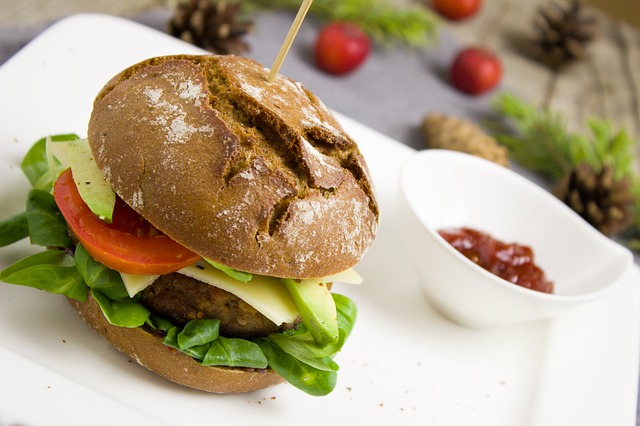
Meat Replacements Without Similar Taste And Texture
Many recipes can also utilize other Vegetarian products such as the Following: Beans – There are a wide variety to use in many recipes Polenta – This corn based product can replace meat in many dishes. Be sure to cook it separate to keep it from falling apart. Avocado – A healthy and tasty alternative to meat in cold sandwiches. Eggs and dairy products contain certain essential nutrients that can be replaced with vegetarian options. For those who do not eat eggs or dairy we recommend that you include a B-12 supplement and drink a daily glass of fortified rice, oat, date, almond or soy milk. The following are some tips you can use when planning your Vegetarian meal without eggs or dairy.
• Drink rice milk, almond milk, or fortified soy milk instead of cow milk.
• Use olive oil, wine, nonfat cooking spray, vegetable broth, or water instead of butter when sautéing unless you are Lacto-ovo Vegetarian and consume dairy products. If you are baking then use canola oil.
• Switch to nutritional yeast flakes or soy cheese instead of dairy cheese.
• Egg replacements are good for baking purposes.
Plant Based Foods And Nutrients
The Vegetarian diet requires the knowledge of this section to avoid any nutritional deficiency. A Vegetarian diet limits foods that provide the body with vitamin B-12, Also the minerals zinc and iron that are freely available in meat diets are not available in all plant foods. These deficiencies are corrected by implementing foods or supplements that incorporate these nutrients.
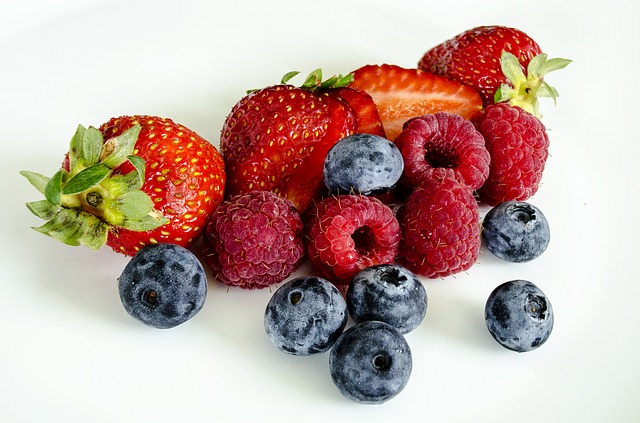
The list below shows the common nutrients that Vegetarians are at a risk of running low on and their alternatives.
• Vitamin B-12 in the body encourages and helps with the growth of red blood cells. This is important in preventing anemia. Vitamin B-12 is in foods such as milk, cheese, and eggs. Vegetarians will need to use enriched cereals, fortified soy products, over ripe fruits, or simply B12 supplements preferably a methylcobalamin version of B-12 to get this vital nutrient.
• Iron is another important role player in the development of red blood cells. Plant foods rich in iron include beans, peas, lentils, and leafy and dark colored vegetables. Other sources include enriched cereals, whole grain, and dried fruit. Spirulina and other green algae’s are abundant in iron. The human body does not easily absorb non-animal based iron. Vitamin C aids in the absorption of iron and that is why it is a good idea for Vegans to incorporate vitamin C foods along with their iron foods to help absorption. High doses of Vitamin C are in citrus fruits, strawberries, cabbage, broccoli, and tomatoes.
• The mineral zinc plays an important part of several enzymes that assist with cell division and production of proteins in the body. Soy products, whole grains, wheat germ, and nuts are all good sources of zinc.
• Calcium helps the body to grow and strengthen the teeth and bones. Dark colored vegetables like turnip, spinach, collard greens, broccoli, and kale are rich in calcium. Fortified soy milk, calcium-enriched, and fortified soy milk are other good sources. Recent studies on milk and its impact on the body demonstrates that it does not add extra calcium to the body.
One food by itself cannot supply all the nutrients needed for optimal functioning. The important thing is to completely explore the plant-food kingdom and discover which food does what and provides what nutrients. This is important because many people quit on a Vegetarian diet due to sheer boredom. It is difficult to enjoy any diet, even a meat inclusive one unless there is variety in the food you eat.
What About Protein?
The majority of protein deficiency cases are in relation to starvation. Proteins are the key to maintaining healthy bones, muscles, skins, and internal organs. You will be happy to discover that if you incorporate a variety of fruits, vegetables, nuts, and beans into your diet you will not have to worry about a protein deficiency. People deprived of food are the only ones who have issues with protein deficiency. In fact, unless a person is starving, most Americans suffer health consequences because of too much protein.
Diets with the highest amounts of protein are generally the worst for your health because excess protein adds a burden to the kidneys and creates an acidic environment within the body. This acidic environment leaches minerals from the bones to buffer the acidity. Researchers, who once thought that milk provided healthy calcium for the body, now know that milk does not contribute calcium. The calcium in milk buffers the acidity due to its high protein content. Vegetarians are one of the least prone to osteoporosis because of this fact.
The world Health Organization recommends that individuals get approximately 10% of calories from protein whereas the unhealthy Standard American Diet averages over 40% protein. Many fruits and vegetables contain approximately 10% protein. The United States consumes on average the highest amounts of protein and carry with this the highest rates of obesity and chronic illness.
“It has long been known that reducing the amount of protein in the diet will significantly enhance the immune system of the body.”
Julian Whitaker M.D.
Another Protein myth is that you need animal products to get all your essential amino acids. You will easily receive all the amino acids you need for optimal health if you eat a variety any fruits, vegetables, nuts, seeds, legumes, sprouts or grains regularly. Furthermore, soy and spirulina are complete proteins.
“If you step back and look at the optimum amount of red meat you should eat should be zero.”
Dr. Walter Willet
What If I Want To Build Muscle?
If you would like to build muscle there are many forms of vegetable protein you can add to your diet. For classic Vegans, the alternative is to include soy products, legumes, nuts, lentils, seeds, whole grains, and meat substitutes. Rice, hemp, and soy are some protein powders on the market. Males may wish to limit their intake of soy because of soy’s estrogen stimulating affects. Lacto Ovo Vegetarians have eggs and milk in addition to the Vegans choices. If you choose to add extra protein to your diet, you may wish to implement a multi mineral supplement to buffer the acidity caused by excess protein.
Healthiest Foods For A Plant Based Diet
All organic fruits, vegetables, nuts, sprouts, seeds, beans, and legumes are extremely healthy as long as you are not allergic to any of them.
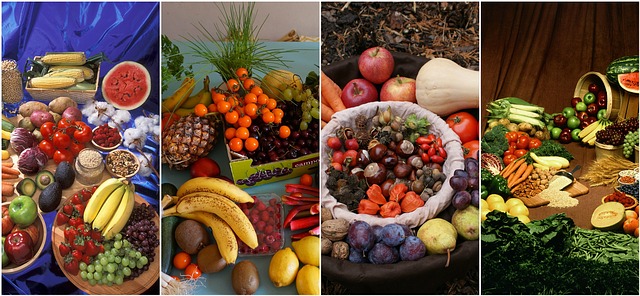
Raw Foods
There are numerous benefits to incorporating raw foods in your diet such as fruits, nuts seeds, and sprouts. While cooking foods is an old tradition, the fact is that the human body prefers food in the raw state. That is why the vegetables and fruits consumed without cooking or processing are the most beneficial to your body. When food is raw, the nutrients, vitamins, and minerals in that fruit or vegetable are untouched. Many enzymes and nutrients are destroyed when foods are cooked over 118 degrees. Cooking or processing anything damages and reduces the amount of nutrients that food contains. We recommend that a person eat at least 40% of their food intake from a combination of raw fruits, vegetables, nuts, seeds, and sprouts.
Vegetarian Super Foods
Try to incorporate as many of these into your daily diet.
Spirulina
A wonder food. Spirulina is a blue green algae filled with very assimilative complete protein. DNA, chlorophyll, and B vitamins. It also contains healthy omega 3 fatty acids and iron.
1 teaspoons or more a day (6 capsules or more).
Nutritional Yeast
Rich in protein, B vitamins, selenium, chromium. 1 tablespoon or more a day. Black Strap Molasses It is the mineral-rich ‘left over’ of the sugar milling process. It is a good source of iron, calcium, potassium and magnesium. This super food is not only healthy, but it tastes great. Add black strap molasses to baked beans for a robust flavor. Choose un-sulphured varieties for a healthier and tastier choice.
2 teaspoons or more – 2 times a day.
Flaxseed
Contain healthy fiber and Omega 3 fatty acids. Walnuts Contain healthy Omega 3 fatty acids.
Hemp Seed
Contain healthy fiber and Omega 3 fatty acids.
Organic Oatmeal
Contains healthy fiber and cholesterol lowering nutrients.
Organic Berries
Rich in healthy antioxidants.
Rice Bran
Contains healthy fiber and power packed with over 70 antioxidants.
Kelp
Kelp is an inexpensive seaweed rich in minerals and contains substances called alginates that assist detoxification.
Cinnamon
Supports healthy blood sugar levels.
Tumeric
Anti cancer and anti inflammatory properties. Brussel Sprouts Anti Cancer properties.
Sauerkraut
Healthy bacteria and anti cancer agents are found in this fermented vegetable.
Kimshi
These fermented vegetables have an abundance of healthy bacteria for intestinal health.
What Supplements Should Vegan and Vegetarians Take?
Adding certain foods and supplements to the Vegetarian diet will help ensure that you are on the path to optimal health and longevity. A healthy vegetarian diet generally provides plenty of nutrients from a variety of fruits and vegetables with the exception of b-12 and iron, however it is recommended to include the following for health assurance.
1. B-12
Bliss Planet recommends that all Vegetarians especially Vegans take a B12 supplement. The Methylcobalamin version of B 12 is a much better choice than the more common synthetic Cyanocobalamin. Methylcobalamin is better assimilated and while breaking down Cyanocobalamin a mildly toxic cyanide residue may occur.
2. Iron
We also recommend taking an iron supplement. Heme iron is the most absorbable form of iron, but it is only found in animal sources. Non-heme iron is available in many plant foods, but is not as easily assimilated so more non-heme iron should be consumed to recieve the same benefit.
Consider daily supplementation of Spirulina, Nutritional Yeast, and Blackstrap Molasses that provides vital nutrients such as iron sometime lacking in Vegetarian diets.
Supplements For Pregnancy
If you are pregnant or nursing Vegan it is extremely important to take a B-12 supplement to ensure healthy development of your baby. Another recommendation for pregnant females is to supplement with healthy Omega 3 fatty acids derived from flax or algae.
What Should I Avoid?
Healthy Vegetarians emphasize variety of healthy foods in their diets, however, they also limit highly processed foods and avoid others entirely.
Avoid any food that stimulates an allergic response because it will cause an inflammatory response within the body.
Food avoidance depends on the category you choose. Vegans are generally more aware of products for there are many products that most would not think contain animal products. For example… if you are Vegan you may need to be aware of hidden animal products such as Gelatin. Most supplements that do not use veggie capsules use gelatin derived capsules.
Regardless of the type of Vegetarian diet chosen the following are things that you should consider limiting and avoiding for optimal health:
Limit:
Highly Processed Foods Sugary Foods (sugars, high fructose corn syrup, sucrose, glucose etc.)
We recommend using alternatives to powdered white sugar. Raw organic honey, fruit powders, Sucanat, Stevia and alcohol sugars such as Xylitol are healthier choices. Lo Han fruit is 200 times as sweet as sugar and is becoming increasingly popular worldwide.
Avoid:
Hydrogenated or Partially Hydrogenated Oils
Hydrogenated and partially hydrogenated oils are trans fatty acids that should be avoided.
Trans fatty acids also increase LDL cholesterol (the “Bad Cholesterol”) and lower HDL cholesterol (the “Good Cholesterol“) increasing the risk of heart disease like saturated fats. However, they are much worse because trans fats are broken down and assimilated into the body and become part of cell membranes. Cell membranes composed of trans fat are more “rigid” than healthy sources of fat such as olive oil, coconut oil, or safflower oil. Fluid cell membranes are essential for optimal cell-to-cell communication, which reduces the risk of many diseases, including cancers and other pro-inflammatory conditions.
Fried Foods
All fried foods are unhealthy and should be avoided for optimal health.
Fried foods contain acrylamides which are cancer causing substances created with high heat temperatures. French fries and fried potato chips are some of the worst offenders. Also avoid toasting your breads which increase the presence of these toxic substances.
Another toxic substance found in fried food is advanced glycation end products that damage tissue especially if you are diabetic.
Also avoid the following chemicals:
Aspartame, Monosodium Glutamate, Neotame, and other chemicals listed at: How To Read Nutrition Labels
Making The Transition
If you wish to become a Vegan, you may want to start at one of the less strict Vegetarian groups before making the transition. This one-step at a time approach has proven successful for many Vegans.
It does not matter how long you have been eating meat and meat products or what age you are. You can switch to a Vegetarian diet anytime you want and still meet all your nutritional requirements. Elder people and pregnant women can also benefit from this switch to a healthier lifestyle. Those with serious health conditions may wish to slowly transition into a Vegetarian diet making sure they adhere to the recommended advice.
Here is an easy way of switching to a Vegetarian diet. First, make a list of all foods that you currently enjoy and cook regularly. Next, analyze which of these foods are already within the healthy Vegetarian guidelines and highlight them with a green highlighter, or write them on a separate sheet. Of the remaining items on your current list, find the foods that are easily converted to Vegetarian rules. Many dishes are delicious by replacing meat with meat substitutes, vegetables, or beans. This process of elimination will make you realize that there are no great sacrifices involved in shifting to a Vegetarian mode of life.
Now it is time to enter the wonderful world of Vegetarian recipes that can fill the gap left by the removal of meat from your menu. The Internet is a good place to look for recipes because you can search for what you exactly need and you may even find some video tutorials at no charge. Check your neighborhood for restaurants that serve Vegetarian food and see if you can get some ideas from the chef.
Consuming Less Meat Can Also Make A Difference
Many vegetarians have family members that are not Vegetarian. Many of these Non-Vegetarians may end up eating less meat because of your choices. Non-Vegetarians can also experience health benefits by limiting meats and highly processed foods while incorporating more vegetables and fruits into their diet.
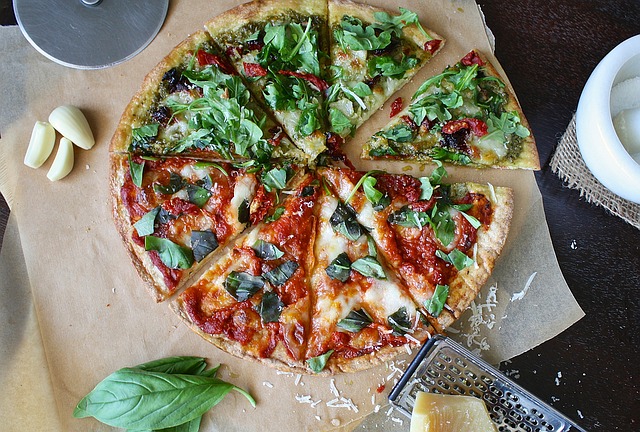
Plant Based Cooking
Some people tend to think that a veggie recipe means a few carrots and some nuts. Vegetarian recipes can be quite delicious. There are several cultures across the world that are completely Vegan yet they use common vegetables and grains to make hundreds of Vegan recipes that anyone can enjoy. Curry, burgers, soup, casserole, pastas, hotdogs, steak, and desserts are just some of things you can make by following a Vegan recipe.
A Vegetarian recipe uses common ingredients like vegetables, fruits, grains, and nuts. There are several types of veggie recipes depending on the type of Vegetarian. This means that you may be able to include fish, eggs and dairy products. A Vegetarian recipe combining this and legumes, potatoes, and rice can be really good for taste as well as providing the right nutrition.
Most of the items included in a Vegetarian recipe will already be present in your kitchen and even if they are not, they are easily found in any food store or grocery. Veggie recipes are in books, newsletters, and magazines. A great resource to discover Vegetarian recipes is the Internet. You can conduct a search and visit hundreds of websites where you can find thousands of free Vegetarian and Vegan recipes from all over the world.
Put very simply, a veggie recipe will be just like cooking a regular meal but leaving out the meat. This raises concerns in some people who are worried that this removal will lead to a meal deficient in certain essentials. However, it just needs a little foresight and planning to make sure that a Vegan recipe contains all the important nutrients that are required by the body on a daily basis.
The following are some examples of healthy meals. You are encouraged to eat of variety of foods for optimal nutrition so mix it up and enjoy a wide variety of delicious whole food combinations. Please note if you are a Vegan replace cheeses and eggs with Vegan replacements.
Breakfast Examples
1. Oatmeal with blackstrap molasses, coconut oil and fortified rice milk with your choice of diced fruit.
2. Peanut butter and 100% fruit organic preserves on whole grain bread.
Lunches Examples
1. Salad Varieties There are a myriad of wonderful leaves and sauces to keep your palette delighted.
Healthy possibilities to add to your salad: Chopped nuts, tomatoes, sun dried tomato, bruschetta, goat cheese, avocado.
2. Avocado Sandwich with whole grain bread, sliced avocado, cheese (Vegans can use soy cheese instead), spinach leaves, diced tomatoes, olive oil, vinegar, vegan mayo.
Dinner Examples
1. Salsa Fiesta Beans Corn Vegan Butter Cheese Salsa Stir fry these items together in a skillet.
2. Bean and Cheese Enchilada Special
16 whole wheat or corn tortillas
3 cans of drained pinto or black beans
1 can of organic corn.
2 cups of graded cheese or vegan equivalent
½ cup of whole wheat or gluten free flour
½ cup of nutritional yeast
2 cups of water
5 tablespoon of non hydrogenated vegan butter
3 small cans enchilada sauce
2 medium onions chopped
1 can olives chopped
1/4 cup chopped cilantro
1/2 cup salsa
1 teaspoon of salt
1 teaspoon garlic powder
1 teaspoon mustard
Combine flour, nutritional yeast, water, garlic powder and salt in a saucepan. Mix it up on medium heat until its thick and bubbling. Remove from heat and mix all the above except 1 cup of cheese (or vegan equivalent) and tortillas.
Lay 8 tortillas down slightly overlapping each other on a large pan. Scoop the saucepan ingredients on top of the tortillas. Then cover the ingredients with 8 more slightly overlapping tortillas. Place the other cup of shredded cheese (or vegan equivalent) on the very top. Bake at 350 degrees until brown for approximately 35 – 45 minutes.
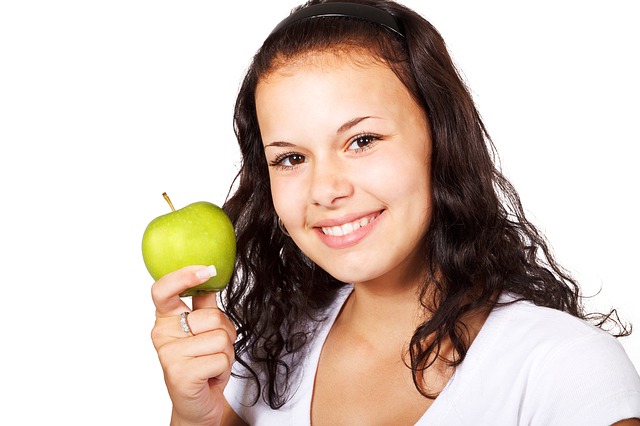
Simple Steps On Becoming A Healthy Vegetarian
Step 1. Replace meats with beans, nuts, and meat substitutes.
Step 2. Eat a wide variety of fruits and vegetables. Thoroughly wash to limit any harmful residues.
Step 3. Replace highly processed breads, rice and pastas with whole grain versions such as whole grain bread, brown rice and spinach or brown rice pasta.
Step 4. Limit highly processed Foods and additives.
Step 5. Get 5 minutes of sunshine a day (important for Vitamin D).
Additional Recommendations
Take a B-12 supplement (methyl versions such as methylcobalamin are best assimilated).
Take an Iron supplement
Implement 1 – 2 tablespoons of Nutritional Yeast
1 teaspoon or 6 capsules daily of Spirulina
1 teaspoon of Black Strap Molasses
Our Food can have a tremendous impact on our health and the well-being of others. When we choose healthy vegetarian foods, our health, animals well-being and the environment all benefit. To a healthier and more compassionate world!
For more Vegetarian recipes, information, resources, and a forum visit the Vegetarian Center at Vegan-Vegetarian Forum
© 2007 Bliss Planet and Life Dynamix
Download this great resource as an e-Book 🙂 How To Be A Healthy Vegetarian – eBook

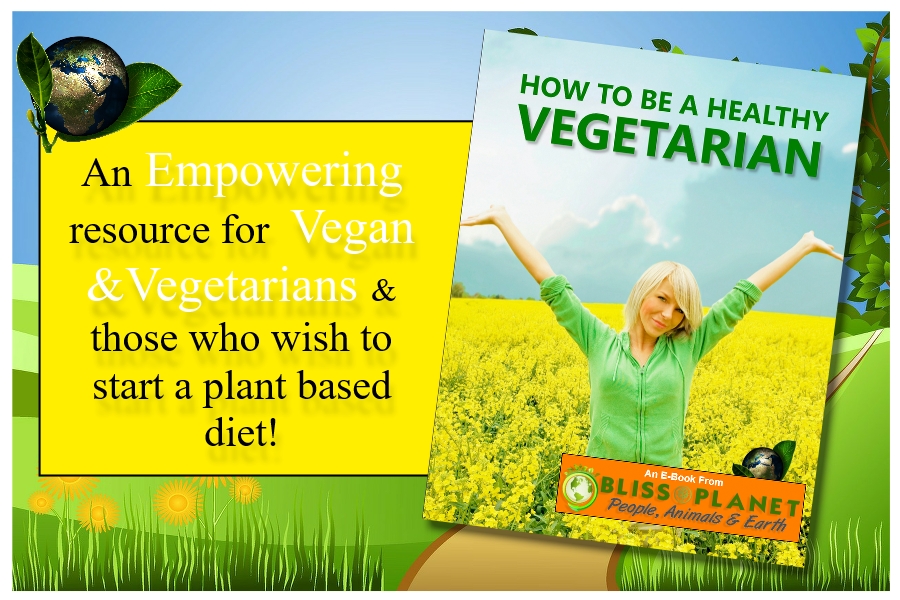
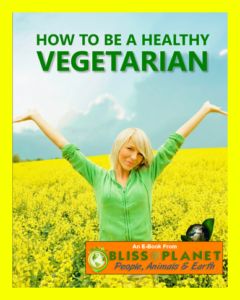



Are you ready to embrace the plant-based lifestyle and become a healthy vegan? Great! You’re making compassionate food choices that will benefit your health and the environment. Here are some tips to help you make the most of your new diet:
1. Start with small changes: Don’t try to overhaul your entire diet at once. Begin by incorporating more plant-based foods into your meals gradually.
2. Eat a variety of foods: A balanced vegan diet should include a mix of whole grains, legumes, fruits, vegetables, nuts, and seeds. Make sure you’re getting all the nutrients you need.
3. Be mindful of protein: Contrary to popular belief, it’s easy to get enough protein on a vegan diet as long as you incorporate sources like tofu, tempeh, lentils or chickpeas in your meals.
Becoming a healthy vegan is a great way to improve your overall health and vitality, while also making a positive impact on the environment and reducing animal suffering. However, it’s important to do it in a way that is sustainable, balanced, and respectful of your body’s needs. Start by focusing on whole foods and incorporating a variety of plant-based protein sources, such as beans, lentils, nuts and seeds. Greens, fruits and vegetables should also make up a large portion of your diet, as they provide essential nutrients, fiber, and antioxidants. When it comes to fats, choose healthy options such as avocado, coconut and olive oil, while limiting refined and processed oils. It’s also important to supplement your diet with vitamin B12, which is present only in animal products.
While it’s important to be mindful of the nutritional composition of your meals, it’s equally important to listen to your body’s needs. Eating intuitively and mindfully, rather than adhering to strict rules or fad diets, can help to ensure that you’re nourishing yourself in a sustainable and satisfying way. This might mean focusing on whole, natural foods rather than heavily processed vegan junk food, or incorporating small amounts of high-quality animal products if you feel it’s necessary for your health.
In addition to a healthy diet, regular physical activity is also important for overall health. Whether it’s yoga, running, weight lifting or hiking, find a form of exercise that you enjoy and make it a regular part of your routine. Remember to rest and recover as well, as allowing your body time to recover is just as important as the exercise itself.
Lastly, it’s important to be mindful of the impact your vegan lifestyle has on others. While it’s important to advocate for animal rights and environmental sustainability, it’s not productive or respectful to shame or belittle those who don’t share your lifestyle choices. Instead, focus on educating and inspiring others by sharing delicious and healthy vegan recipes, promoting ethical and sustainable brands, and engaging in productive conversations.
Becoming a healthy vegan is all about finding balance and nourishing your body and mind in a sustainable and respectful way. By focusing on whole, natural foods, regular exercise, and mindful living, you can thrive on a vegan lifestyle while also making a positive impact on the world around you.
Wellness refers to a holistic approach towards achieving optimal physical and mental health. It involves making conscious choices to maintain a healthy lifestyle, including regular physical activity and choosing nutritious foods. Vegan Whole Foods can play an important role in promoting healthy wellness as they offer a range of nutrients, vitamins, and minerals that are essential for overall health.
A vegan diet that primarily comprises of whole foods such as vegetables, fruits, legumes, nuts, and whole grains is naturally low in saturated fat, cholesterol, and high in fiber. This type of diet has been associated with lower risks of chronic diseases such as diabetes, heart disease, and certain types of cancers. The high fiber content of whole foods aids in digestion and promotes bowel regularity while reducing the risk of constipation. Additionally, plant-based diets have been linked to lower body mass index and reduced incidences of obesity.
Whole foods are also abundant in nutrients such as vitamin C, vitamin E, folate, and iron. They are crucial for maintaining a healthy immune system, preventing infections, and promoting healthy skin and hair. Vitamin C is particularly beneficial for the immune system as it acts as an antioxidant, protecting the body from damage caused by free radicals. Similarly, the iron found in plant-based foods is readily absorbed by the body and helps in the production of red blood cells. This can help prevent anemia, a condition characterized by fatigue, weakness, and shortness of breath.
In addition to physical health benefits, vegan Whole Foods can also positively impact mental wellness. Plant-based foods are known to boost mood and energy levels due to their high nutrient density and low glycemic index. They are also rich in antioxidants and anti-inflammatory compounds that can help slow down cognitive decline and reduce the risk of depression and anxiety.
Vegan Whole Foods can help achieve healthy wellness by providing the body with essential nutrients and promoting a healthy lifestyle. Incorporating a variety of colorful fruits and vegetables, legumes, nuts, and whole grains into your diet can help maintain optimal physical and mental health. A wholesome plant-based diet not only supports the wellbeing of the individual, but also benefits the environment as it helps reduce the carbon footprint caused by industrial meat and dairy production. Being a vegan is a lifestyle choice that comes with numerous health benefits, but it can be rather challenging without proper guidance. With the right approach, anyone can be a healthy vegan and achieve their desired health goals. One of the main concerns for vegans is getting enough protein. This is where legumes, soy, nuts, and seeds come in handy. These ingredients can be added to any meal and in unlimited amounts to give vegans the necessary protein they need.
Another important aspect of being a healthy vegan is to incorporate whole grains, fruits, and vegetables in one’s daily diet. These foods provide vitamins, minerals, and fiber that are essential for maintaining optimal health. It’s also crucial to keep track of what you eat to ensure that you are getting enough calories and nutrients.
Not all vegan foods are created equal, and some may be high in fat, sugar, and sodium. It’s important to read food labels carefully and make informed choices. Don’t skip meals or deprive yourself of food, this will only lead to binge eating or unhealthy food choices. Instead, opt for snacks high in fiber or protein, such as hummus and carrots or almond butter on toast. There are also many healthful vegan options for eating out, such as salads, buddha bowls, and vegetable-based soups.
Being a healthy vegan also involves exercise. Engage in physical activity for at least 30 minutes a day to boost your metabolism and improve your overall health. Some great options include jogging, yoga, and weightlifting. Remember to hydrate yourself well, which is key to keep your energy levels up during exercise.
In addition to diet and exercise, maintaining good mental health is equally important. Make time for activities that make you happy, such as reading, meditating, or spending time with loved ones. Try new hobbies to stay engaged, and aim for a good work-life balance. Finally, be kind to yourself and don’t put too much pressure on yourself to be perfect. Start small and make gradual changes in your diet and lifestyle that work for you.
Being a healthy vegan is easier than you might think, and with the right mindset, it can be a rewarding and enjoyable experience. Start by incorporating more plant-based foods into your diet, moving your body regularly, and taking care of your mind and body. With persistence, you will see the great benefits that being a healthy vegan can bring to your life.
A vegan diet can be a healthy way to eat, but it’s important to make sure you’re getting all the nutrients you need. Here are some tips for being a healthy vegan:
Eat a variety of foods. This will help you to get all the nutrients you need. Make sure to include plenty of fruits, vegetables, whole grains, legumes, and nuts in your diet.
Choose fortified foods. Some foods, such as plant-based milks and cereals, are fortified with nutrients that are not as easily found in plant-based foods. These include vitamin B12, iron, and calcium.
Take supplements. If you’re not sure if you’re getting all the nutrients you need, talk to your doctor about taking supplements. Vitamin B12 is especially important for vegans, as it is not found in plant-based foods.
Be aware of your iron intake. Iron is an important nutrient for everyone, but it can be especially difficult for vegans to get enough iron. Good sources of iron for vegans include beans, lentils, spinach, and fortified cereals.
Be aware of your calcium intake. Calcium is another important nutrient for vegans. Good sources of calcium for vegans include fortified plant-based milks, leafy green vegetables, and calcium-set tofu.
Talk to your doctor. If you have any concerns about your vegan diet, talk to your doctor. They can help you make sure you’re getting all the nutrients you need.
Here are some additional tips for being a healthy vegan:
Cook at home. This will give you more control over what goes into your food.
Read food labels. This will help you to make sure you’re choosing foods that are fortified with nutrients.
Plan your meals. This will help you to make sure you’re getting all the nutrients you need.
Don’t be afraid to experiment. There are many delicious vegan recipes available.
Experiment until you find some that you enjoy.
Join a vegan community. This can be a great way to learn more about veganism and to get support from other vegans.
Following these tips can help you to be a healthy vegan.
A plant-based diet is important to adapt for the future of the planet and life on earth because it is more sustainable than a meat-based diet. A plant-based diet requires less land, water, and energy to produce than a meat-based diet. It also produces fewer greenhouse gases, which contribute to climate change.
Here are some of the benefits of a plant-based diet for the environment:
A plant-based diet is also better for human health than a meat-based diet. Plant-based diets are lower in saturated fat, cholesterol, and sodium. They are also higher in fiber, vitamins, and minerals.
Here are some of the health benefits of a plant-based vegan diet:
In conclusion, a plant-based vegan diet is important to adapt for the future of the planet and life on earth because it is more sustainable and better for human health. If we all make the switch to a plant-based diet, we can make a big difference in the fight against climate change and improve our own health in the process.
The path of a healthy vegetarian. It is indeed a journey filled with nourishment, compassion, and mindful choices. As a vegetarian, one abstains from consuming meat, poultry, and fish, and instead focuses on a plant-based diet. Here are some tips to support you on your quest for a healthy vegetarian lifestyle:
Remember, it’s always a good idea to consult with a healthcare professional or a registered dietitian who specializes in vegetarian nutrition to ensure you’re meeting your individual nutritional needs.
I hope these tips guide you on your journey towards being a healthy vegetarian.